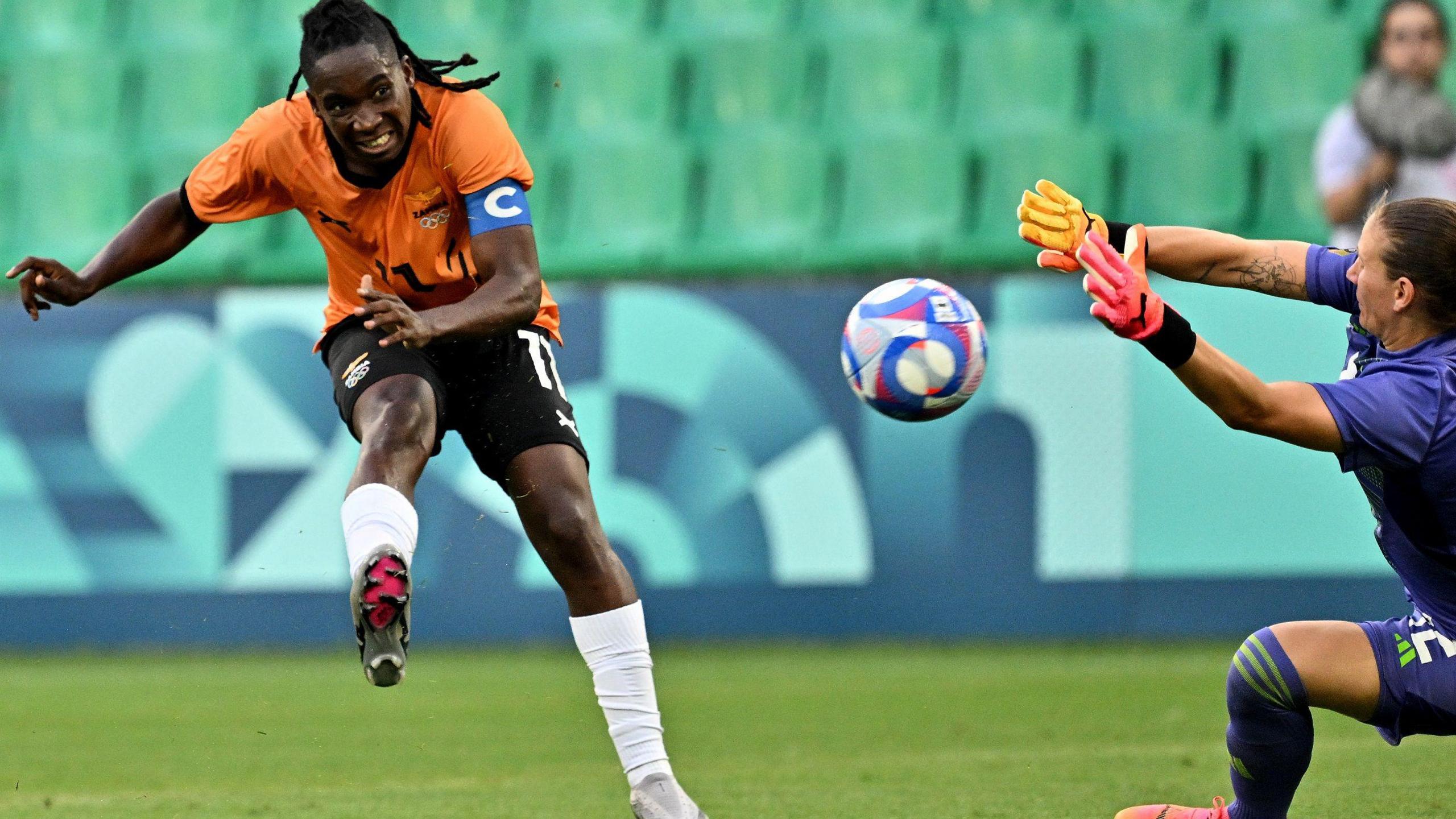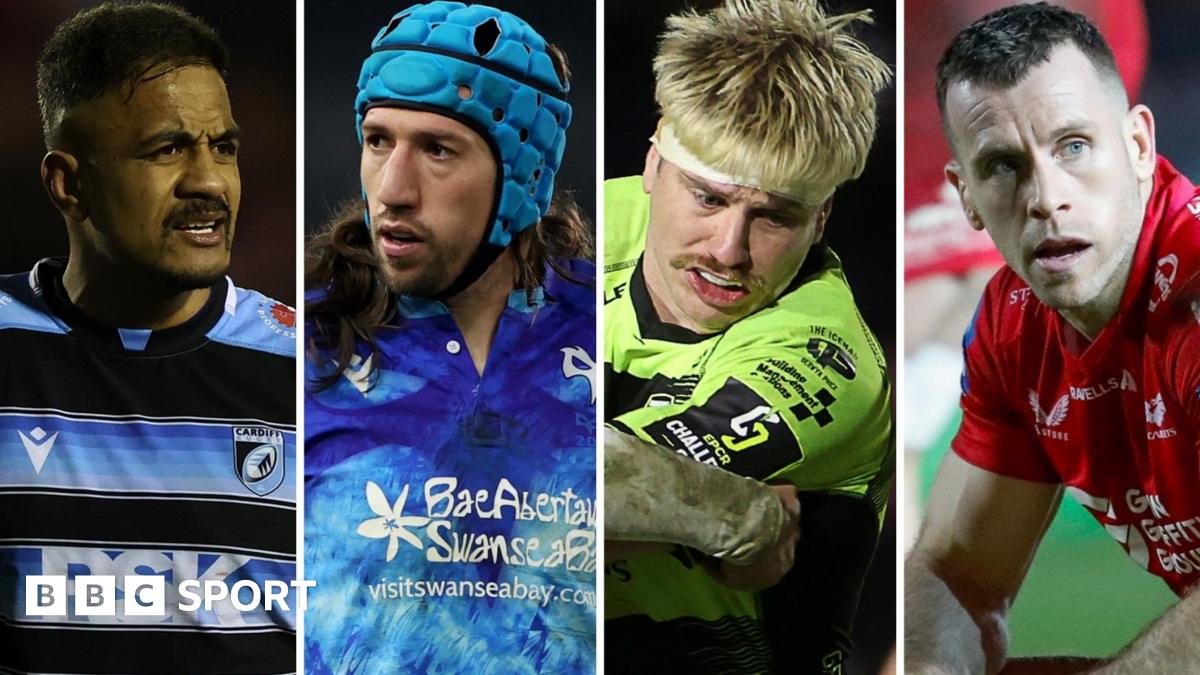ARTICLE AD BOX
 Image source, Getty Images
Image source, Getty Images
Zambia captain Barbra Banda made history this year by becoming the top-scoring African at the Olympic Games
Piers Edwards
Football writer
After a landmark year in which she achieved several notable footballing firsts, Zambia's Barbra Banda could be forgiven for resting on her laurels.
Instead, the woman crowned Africa's best on 16 December is simply focused on getting even better.
"I want to be the greatest footballer in the world," the 24-year-old told BBC Sport.
Over the past 12 months Banda has moved in the right direction, having won her first club trophy and become Africa's all-time top scorer (male or female) at the Olympic Games.
In addition, she was named the best player in the United States' National Women's Soccer League (NWSL), which her side Orlando Pride won for the first time after Banda scored the only goal in the play-off final against Washington Spirit.
Not only did her 17 goals assist the team, but she was helped herself by playing alongside Marta, the record six-time winner of Fifa's best women's player award.
"I've learned a lot of things from her," Banda said of the 38-year-old Brazil great.
"She's a very good person and will encourage me when she feels I can do better. Then she tells me I have to do this, or that. I feel so encouraged to have that conversation with the person that is my idol.
"That makes me keep on improving every day."
Not only is Banda being pushed by Marta - considered by many to be the best women's player ever - but she thinks the step up from playing in China with Shanghai Shengli to the NWSL has also elevated her game.
"Here, the league is more competitive," Banda explained.
"You have to up your game to do well. I feel I've changed my game and improved in so many ways."
When she became the first Zambian to be voted BBC Women's Footballer of the Year in November, Banda was quick to praise and thank her Pride team-mates, saying they had joined club staff in pushing her to succeed.
The forward also made her mark internationally this year.
She struck four times, including a hat-trick against Australia, at the Olympics in July to take her tally to 10 goals at the Games - two more than any other African.
"I feel great scoring hat-tricks and having that record," she said with a beaming smile. "It is unfortunate we didn't go further but it was a great experience, and I think I'm still learning from those major tournaments."
Zambia exited in the group stage but Banda's international and club displays meant she became the first African to be voted into the year's Best XI following a poll, external organised by global players' union Fifpro.
Shortly afterwards Banda finished second behind Spain's Aitana Bonmati in the Fifa Best women's player award. No African had ever previously made the top three.
Winning over mum - and a tribute to dad
When Banda was growing up, her footballing heroes were all men because the women's game barely had a presence in her southern African homeland.
Instead she was inspired by the likes of Rainford Kalaba and Christopher Katongo, who spearheaded one of the sport's greatest fairytale triumphs when winning the 2012 Africa Cup of Nations.
Banda's early passion was supported by her late father - but not by her mother.
"Way back, African parents were against women playing soccer so it was very difficult for my mum to accept," she recalled.
"She would always encourage me to go to school instead of doing soccer. Although my father would allow me [to play], my mum would say, 'no, she can't do that'."
But as Banda finished her education and showed the extent of her prowess on the pitch, including playing at the Under-17 World Cup in 2014 despite being only 13, her mother changed her mind.
"She came to understand what football is," she said.
"Now, she's my number one fan. Whenever I'm playing in Zambia she's the first person in the stadium."
Banda has not forgotten her father, having a tattoo bearing his name.
"Everything I do, I dedicate to him," she added. "He really supported me in all ways, even when my mum would put up a fight over buying football shoes."
Image source, Getty Images
Image caption,After her treble against Australia at Paris 2024, Banda now has three Olympic hat-tricks
The next generation of Zambian girls should not face the same battles given the pioneering progress of both Banda and Zambia team-mate Racheal Kundananji.
The latter became the costliest player in women's football history when NWSL side Bay FC paid $860,000 (£683,581) for her services in March.
"Right now, everyone is looking where Zambia is," said Banda, who is overjoyed that other Africans are also making their mark in the NWSL.
For example, Malawi's Temwa Chawinga set a new goals record for a NWSL season after scoring 21 times in 2024.
"I'm excited because this is showing how Africa is improving," added Banda.
"We are trying to improve our game in Africa, which is very important for us.
"We have talent, young girls that are good. All those youngsters coming up [are] looking up to me, so it's very important for me to show good character to them."
Unfinished business
Image source, Backpage Pix
Image caption,Banda is the first Zambian to win the Confederation of African Football's women's player of the year award
Moments after stepping on stage in Marrakesh as the first Zambian to be named African Women's Footballer of the Year, Banda said her path to success had been "so tough".
For in addition to her battle with her mother, the forward was also embroiled in a gender eligibility row over her ability to contest the 2022 Women's Africa Cup of Nations (Wafcon).
Banda gained unwanted headlines when the Zambian FA, believing that her natural testosterone levels were too high, did not select her for the tournament.
With a deeper understanding of the situation, the FA has since fielded her in the 2023 Women's World Cup, the 2024 Olympics and - most significantly - in the qualifying campaign for the 2025 Wafcon.
An insatiable goalscorer, Banda not only had the distinction of netting the 1,000th goal in Women's World Cup history but also struck four times in the two qualifiers that took Zambia back to Wafcon.
The Copper Queens are now eyeing a first continental title in Morocco next year after finishing third in the last edition.
"Our target as a team is to get that trophy because I think we deserve it," added Banda.
And, in a bid to ensure 2025 delivers silverware, Zambia's captain is ensuring the mission is crystal clear for the squad - wherever they may be.
"I keep on telling them we have a task ahead of us," she explained.
"We are in different places but we communicate to keep ourselves together. We know we have this ahead of us - to go and get that trophy."

 2 weeks ago
8
2 weeks ago
8








 English (US) ·
English (US) ·